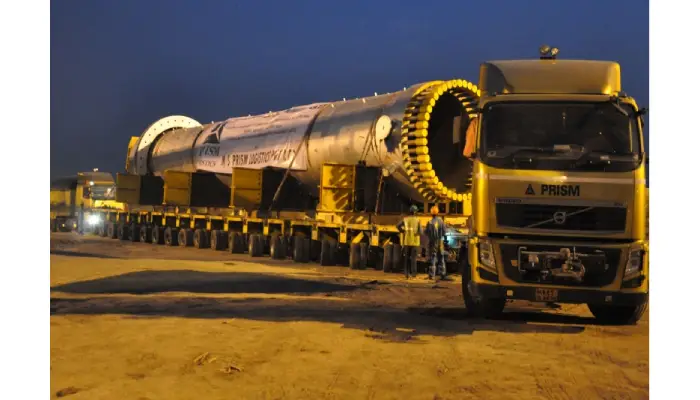Choosing the right logistics service provider can be a bit tricky, but breaking it down helps. First, think about what you really need, like the size and fragility of your products. Evaluating a provider’s capabilities is also crucial; check if they have the services you require and experience in your specific industry. Look at their network to see if they cover the areas you need, especially for international shipping. Don’t forget to assess their financial stability and customer support as well. Finally, conducting trial shipments might give you an idea of how well they perform before committing long-term.
1. Understand Your Logistics Needs
To choose the right logistics service provider, start by getting a clear picture of your logistics needs. Consider the nature of your products; are they large, heavy, or fragile? For instance, if you’re dealing with high-value electronics, you’ll need a provider that specializes in secure handling and packaging. Next, assess your shipping volume and frequency. Are you shipping daily, weekly, or just occasionally? This will help determine whether you need a provider that can manage high volumes or one that can accommodate sporadic shipments.
Additionally, identify any specific service requirements you might have. If your products require temperature control, for example, ensure that the provider has the capability to offer refrigerated transport. Similarly, if you deal with hazardous materials, you’ll want to work with a provider experienced in handling such goods safely and in compliance with regulations. Understanding these fundamental aspects will guide you in selecting a provider that not only meets your current needs but can also adapt as your business grows.
2. Evaluate Provider Capabilities
When evaluating a logistics service provider, it’s essential to dive deep into their capabilities. Start by examining the range of services they offer. Do they provide freight forwarding, warehousing, and distribution? Having a one-stop shop can simplify your logistics process. Next, consider their experience in your specific industry. A provider familiar with your sector will understand the nuances and challenges that come with it. For instance, if you deal with fragile items, a provider with a track record in that area will be invaluable.
In today’s digital age, technology is a game-changer in logistics. Look for providers who offer advanced tracking systems and inventory management tools. These technologies not only help you keep tabs on shipments in real-time but can also enhance efficiency in your operations. For example, a provider with robust analytics capabilities can offer insights that help you optimize your supply chain.
Lastly, don’t forget to assess their geographical coverage. If your business operates internationally, ensure the provider has the necessary network and relationships with carriers to facilitate seamless global shipping. This could mean the difference between timely deliveries and costly delays.
- Assess the range of services offered
- Check experience in your specific industry
- Review equipment and technology capabilities
- Analyze workforce expertise and training
- Look into scalability options for growth
- Consider track record on delivery performance
- Evaluate flexibility in adapting to your needs
3. Consider Network and Coverage
Choosing a logistics service provider with a strong network and comprehensive coverage is crucial for seamless operations. Start by identifying whether the provider can effectively reach your target markets, both domestically and internationally. For example, if your business operates in multiple states or countries, a provider with established routes and partnerships in those regions can ensure timely deliveries. Additionally, check if they have access to various transportation modes, such as air, sea, and land, to adapt to different shipping needs.
Furthermore, assess the provider’s relationships with carriers. Strong partnerships often lead to better rates and more reliable service. A logistics provider with a robust network can leverage its connections to offer you competitive shipping options and improve overall efficiency. If your business requires specific shipping solutions, such as overnight delivery or special handling, ensure that the provider can accommodate those needs through their network. Ultimately, the right logistics partner should not only meet your current requirements but also have the capacity to grow with your business.
4. Review Financial Stability
Financial stability is a key aspect when selecting a logistics service provider. A provider that is financially healthy is more likely to deliver consistent service over time. Begin by researching their financial background. Look for signs of stability such as consistent revenue growth, positive cash flow, and a solid credit rating. You can often find this information through financial reports or industry analyses.
It’s also helpful to read reviews from other businesses that have worked with the provider. These insights can reveal not only how reliable they are but also how they handle financial challenges, should they arise. For instance, if a provider has had recent layoffs or significant changes in leadership, it might raise a red flag about their stability.
Additionally, ensure that the provider has the capacity to manage your logistics needs without financial strain. For example, a company may be able to offer low rates, but if they are struggling financially, they may cut corners or fail to invest in necessary resources. This can ultimately impact your logistics operations. In short, assessing a provider’s financial health is crucial to ensuring you choose a partner that can support your business effectively in both the short and long term.
5. Analyze Cost Structures
When evaluating logistics service providers, understanding their cost structures is crucial. Start by requesting detailed quotes that break down all potential expenses, such as shipping fees, handling charges, and insurance costs. This transparency helps you gauge how much you will really pay and what services you are receiving in return. It’s important to compare these costs against the specific services offered. Sometimes, the lowest price may come with hidden fees or inadequate service quality, which can lead to higher costs in the long run.
Additionally, familiarize yourself with the provider’s pricing model. Some may offer flat rates, while others have variable pricing depending on shipping volume or distance. For example, if your business sees fluctuating shipping needs, a provider with a more adaptable pricing model could save you money. Always factor in how the cost aligns with your logistics needs, as a higher price might be justified by superior service or reliability.
6. Assess Customer Service and Support
When choosing a logistics service provider, evaluating their customer service and support is crucial. You want a partner who is responsive and accessible, especially during critical moments. A provider that offers 24/7 support can be invaluable when urgent issues arise, ensuring that you can get assistance whenever you need it. For instance, if a shipment is delayed, having a dedicated support team ready to assist can mitigate disruption to your operations.
Additionally, it’s wise to check references and read reviews from other clients. This feedback can provide insight into how the provider handles customer service and whether they genuinely prioritize client satisfaction. Look for patterns in the reviews—are customers consistently praising the support they receive, or are there common complaints? These insights will help you gauge the reliability and quality of service you can expect.
Ultimately, strong customer service not only enhances your logistics experience but also builds a foundation for a successful, long-term partnership.
7. Check for Compliance and Certifications
When selecting a logistics service provider, compliance and certifications are crucial factors that should not be overlooked. First, ensure that the provider adheres to all relevant regulations applicable to your industry. For example, if you deal with food products, they must comply with safety standards set by the FDA. Beyond regulations, certifications such as ISO and C-TPAT can indicate that a provider meets high-quality standards and is committed to securing your shipments. Additionally, verify that they carry adequate insurance coverage to protect your goods during transit. This not only safeguards your interests but also reflects the provider’s professionalism and reliability in handling logistics.
8. Evaluate Technology and Tools
When selecting a logistics service provider, it’s crucial to evaluate the technology and tools they use. In today’s fast-paced environment, having the right technological infrastructure can significantly enhance efficiency and transparency in your supply chain. Start by asking about their shipment tracking systems. A robust tracking system allows you to monitor your shipments in real-time, providing peace of mind and enabling proactive management of any issues that arise.
Next, consider how user-friendly their systems are. You want to ensure their technology can easily integrate with your existing systems, whether it’s your inventory management software or your e-commerce platform. Seamless integration can save time and reduce errors, making your logistics operations smoother.
Don’t overlook the value of analytics capabilities. A provider that offers insights and data analytics can help you optimize your logistics processes. For instance, they might provide reports on delivery times, cost efficiencies, and even customer satisfaction metrics. This information can guide you in making informed decisions to improve your logistics strategy.
In summary, the technology and tools offered by a logistics service provider can greatly impact your business operations. Ensure that they not only have the latest technology but also that it aligns well with your specific needs.
9. Conduct Trials and Assess Performance
Starting with a trial shipment is a smart way to see how a logistics provider operates. This initial test can reveal a lot about their capabilities. Monitor key factors like delivery times—are they punctual? Check the condition of the goods when they arrive. Were they damaged during transit? It’s important to gather feedback from your team about their overall satisfaction with the service.
Also, consider establishing performance metrics to make a clear comparison with other providers. For example, you might evaluate on-time delivery rates, accuracy in order fulfillment, and responsiveness to inquiries. By quantifying these aspects, you can make a more informed decision on whether to move forward with this provider or continue your search.
10. Build a Relationship
Building a strong relationship with your logistics service provider is crucial for long-term success. Start by engaging in open communication. Share your business goals and logistics needs, and listen to their insights on how they can help you achieve those objectives. This dialogue helps both parties understand each other better and fosters a collaborative approach. For instance, if you’re launching a new product line, discussing this with your provider can lead to tailored solutions that enhance shipping efficiency.
A partnership goes beyond simple transactions; it thrives on trust and mutual respect. Regular check-ins can help address any issues promptly and can also lead to improvements in service. For example, if you notice delays in delivery, discussing these with your provider can lead to adjustments in their processes that benefit both of you. Over time, a strong relationship can result in more favorable terms, better rates, and priority service during peak times, as the provider is more likely to go the extra mile for a valued partner.
Frequently Asked Questions
1. What should I look for when picking a logistics service provider?
You should check their experience, range of services, customer reviews, and technology used to ensure they meet your needs.
2. How can I tell if a logistics company is reliable?
Look for testimonials, industry certifications, and their commitment to on-time delivery to gauge reliability.
3. What role does customer support play in choosing a logistics provider?
Good customer support is crucial; it ensures you’ll have help when you need it and can resolve issues quickly.
4. How important is it to understand a logistics provider’s services?
It’s very important, as knowing the services offered helps you find a provider that can handle your specific shipping needs.
5. What factors should I consider regarding technology in logistics services?
Consider if they use tracking systems, inventory management software, and modern communication tools to keep you updated on your shipments.
TL;DR To choose the right logistics service provider, start by understanding your logistics needs, including product types and shipping frequency. Evaluate potential providers based on their service capabilities and industry experience. Consider their network coverage and financial stability, and analyze cost structures to ensure value for money. Assess customer service quality and look for compliance with regulations and certifications. Evaluate the technology they use for tracking and managing shipments. Conduct trial shipments to gauge their performance and build a strong, communicative relationship for better long-term collaboration.

Mary Burns is a dedicated writer focusing on health and fitness topics. With a passion for promoting wellness and vitality, Mary shares her knowledge and expertise through engaging and informative blog posts.




